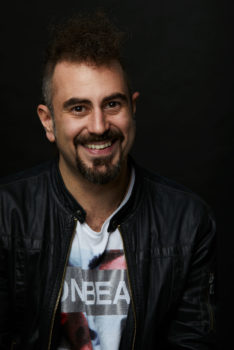Everything is PR
Where is the public industry sector headed to? Here Faris Yakob argues there is a paradigm shift in which everything is shifting towards PR.
Let’s start with the obvious but something that’s never stated: this is PR.
I’m writing this article in order to convince you to come to CommsCon because I’m giving the opening keynote. However, this isn’t an advertisement. I didn’t buy my way into your attention through an interruption in other content you wanted to consume. This isn’t a forced exposure so I can’t just say “Come to CommsCon!” (ideally in a clever way with some interesting design concept, a list of speakers and a web address call to action.) I have to earn your attention, hook you with a headline, and then write something that is both worth reading in and of itself and makes you believe that you would be interested in what I’m going to say at the conference. Interested enough that some of you buy tickets to come and find out.



Good piece mate. Remember when we used to talk about UGC in the early 2000s. and now, user generated content is the new media.
Crap!
ZZZzzzzzzz.
Sold! Where can I buy tickets
Funny, my designer mate reckons everything is branding.
this article is a nice bit of PR for PR
The danger is that marketing technology will replace marketing strategy, as opposed to enabling its implementation. Like most brands’ current engagement via social… they built it, so my brand needs to be there… without the fundamentals of a compelling pod, consumer/shopper need, compelling message, time and place where the audience is ready, willing and able to engage and act. I think too many marketers are missing the fundamentals… Any martech solution that’s presented needs to have an evidence-based strategic underpinning, and that’s something that’s sorely lacking in most agency presentations, be they creative, media or martech.
I see where you’re coming from, although we do agree to disagree.
In my opinion, PR is a wonderful element of the marketing mix, and although departments such as corporate communication and reputation management still require a unique skill set, PR as a whole has been largely made redundant and replaced by content marketing, which facilitates a broader spectrum including bespoke content for social, video production and influencer marketing.
Now we have digital specialists, content specialists and soon-to-be-out-of-a-job public relations people who while they continued to pen pointless media releases, missed the gravy train of new specialisations and developing their arsenal with the skills clients actually need in 2017.